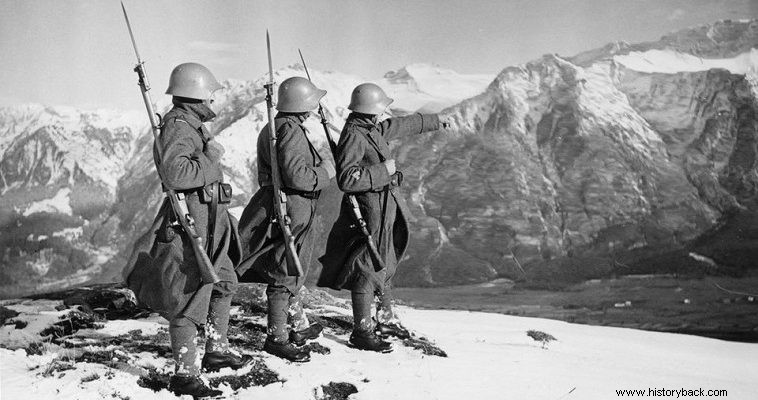
Liechtenstein is one of the smallest countries in the world. Today its population is approximately 38,000 inhabitants. The small principality is located between Austria and Switzerland. The small German state has a long history linked to that of the Habsburg Empire.
Liechtenstein is currently one of the richest countries in the world with a per capita income of $140,000. Today the country has no army but only a small police force. For its defense it relies on Switzerland.
Until 1866 when the defeat of Austria resulted in Prussia (and then a unified Germany) assuming German primacy, Liechtenstein was obliged to provide military power under medieval feudal obligations. Until then he maintained an army of one company consisting of 80 men... After all, the house of Liechtenstein had provided great generals to the Habsburgs until the Napoleonic Wars.
During World War I, however, Liechtenstein sent a detachment to help the Austrians. The number of men who made up the detachment in question is not known. But the strange thing is that the detachment when it returned to the country numbered more men than it had when it left!
Liechtenstein men did not undertake combat service. For all the time they remained in Austrian service they guarded the Brenner Pass. But when the war ended and they returned, they had another soldier with them.
Some sources say he was an Italian deserter who followed them with the intention of settling there and avoiding court-martial. According to another source the Liechtenstein detachment had a strength of 58 men and to them was added an Austrian officer.
According to a variant of the story the officer was of the Austrian army, but of Italian origin. Whatever the truth, Liechtenstein's "army" is the only one in history that came back "stronger" than it left.
During World War II, the small principality of Liechtenstein, thanks to Swiss support, managed not to be absorbed by Hitler's Germany, unlike Austria.
Liechtenstein had assigned, during the war, its diplomatic representation to Switzerland. Of course there were pro-Nazis in the country but they had also founded a party. However, by the decision of the country's prince Francis Joseph II, the Nazi party was dissolved in 1943, without ever gaining any influence.
The official justification for its dissolution was its anti-Jewish preaching and the attempt by its members to join the Waffen SS. Liechtenstein was a safe haven for a number of Jews. Besides, the wife of the previous prince, Francis I, was of Austrian Jewish origin.
- The photo shows Swiss soldiers on the border with Liechtenstein.
